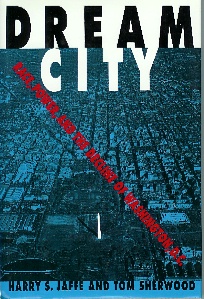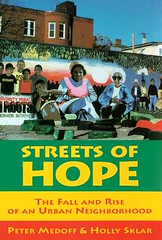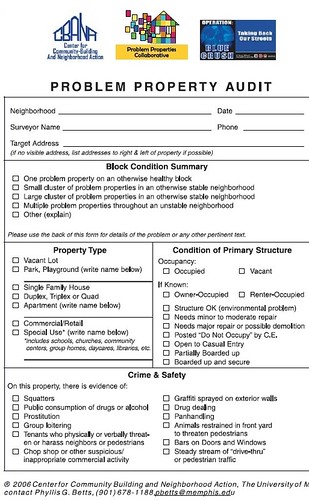DC Neighborhood College Fellowship Program

From a press release:
The D.C. Neighborhood College, in partnership with The George Washington University Center for Excellence in Public Leadership, is now accepting applications for its 2007 civic leadership development program. The free 12-month program seeks to develop effective grassroots leaders and is open to residents from the District's eight wards. Applications are due February 16, 2007, by 3:00 p.m.
"Participating in the D.C. Neighborhood College was a great experience for me," said graduate Karen W. Cooper. "The college gave me the skills I needed to be an effective leader in the community and in my professional life as a manager. I use the knowledge I've gained about economic development, project management, and leadership skills on a daily basis." Cooper is a 2003/2004 Neighborhood College graduate from Ward 4, and founder and chair of the Friends of Petworth Recreation Center.
Since 2002, D.C Neighborhood College has graduated 53 local leaders and was awarded $500,000 from the Office of the Mayor. The college provides local residents with the tools to make a difference in their neighborhoods. Tackling complex issues such as social justice, workforce development, affordable housing, and job creation, graduates are taking strides to build sustainable D.C. communities.
Participants range in age from the early 20s to late 60s. All D.C. residents with a commitment to personal development and positive change are encouraged to apply. Interested applicants should contact Karima Morris Woods at (202) 994-5384. The program takes place three times a month, beginning March 8, 2007, at the Thurgood Marshall Center. Applicants will be asked to complete a form listing their background information, interest in the D.C. Neighborhood College program, and community leadership involvement.
The District of Columbia Neighborhood College, a public-private partnership managed by the Center for Excellence in Public Leadership at The George Washington University, provides civic development training for District neighborhood leaders to become more effective change agents and advocates. Established in 1997, the center's mission is to develop public leaders who make a positive difference in their organizations and in the lives of the people they serve.
---------------------------
The program doesn't train people along the lines that I would--way more detailed information about how the world really works in DC (and beyond) and how to address it would require exposure to:
-- the book Dream City, especially chapter 4 on development in the city (see this blog entry)
-- the journal article "City as a Growth Machine: Toward a Political Economy of Place" by Harvey Molotch, which explains the agenda of local elites in a meta fashion (reading the full book, Urban Fortunes: Toward a Political Economy of Place, wouldn't hurt either
-- Kathy Sinzinger's award-winning article about the Federal City Council, "THE DISTRICT'S POWER BEHIND THE SCENES,"
-- training in placemaking such as the "How to Turn A Place Around" workshop by the Project for Public Spaces (for three years or more I've argued that people working as Neighborhood Services Coordinators for the Mayor's Office should be trained with this program--I'd like to bring it to DC annually as a training-capacity building endeavor)
-- serious training in the development of truly neighborhood and citizen serving negotiating skills such as with this handbook, Community Benefits Agreements: Making Development Projects Accountable
-- probably a read of the book Streets of Hope, about a truly ground up neighborhood revitalization effort in Boston, the Dudley Street Neighborhood Initiative.

This should be complemented by:
-- the development of an information resource center to support citizen involvement and deliberative engagement, such as the Urban Information Center at the Dallas Public Library
-- such an information center should include data and software tools such as the field based tools developed by Pittsburgh's Community Technical Assistance Center and the University of Memphis Center for Community Building and Neighborhood Action


-- an ongoing training program beyond the year to build the capacity of members of civic organizations and ANCs (See for example State of Massachusetts Citizen Planner Training, Neighborhood Revitalization Planning/Minneapolis).
Further complemented by legal clinic assistance such as that performed by the city-developed Neighborhood Law Corps in Oakland, California.
Labels: civic engagement



0 Comments:
Post a Comment
<< Home